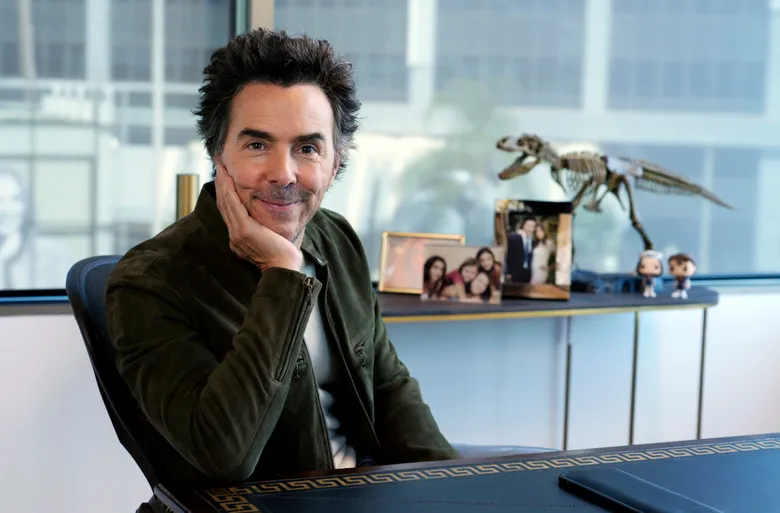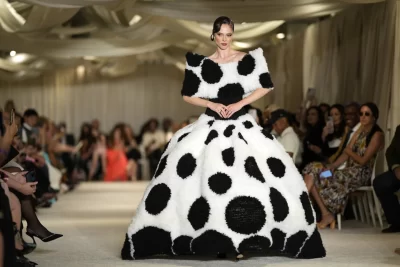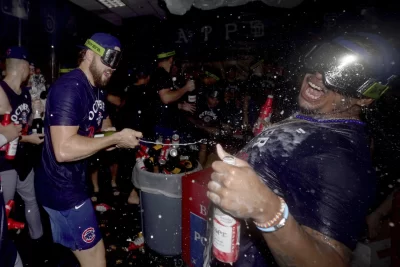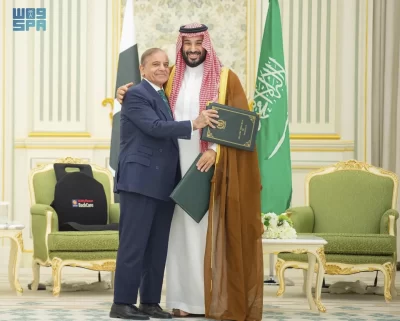
Shawn Levy knew he had to direct the Netflix limited series “All the Light We Cannot See,” when he read a scene between the main character Marie and her father.
“I remember being knocked out emotionally and deciding, “‘I don’t want to share. I want to do all these episodes myself and I want to direct it like a four-hour movie,’” said Levy, who was also a fan of the Pulitzer Prize-winning novel it’s based on.
Levy, a dad to four daughters, wanted to honor this father daughter relationship because it’s “the heart of the show.”
“I get it. I know when it looks fake, and I know when someone is doing right by this beautiful, intimate relationship between a daughter and her father.”
Debuting Nov. 2, the story follows Marie (played by newcomer Aria Mia Loberti), alone and in hiding in German-occupied France and a Nazi solder named Werner (Louis Hoffman). He’s an orphan who was drafted against his will. The two connect because of a radio broadcast that had a pivotal presence in their childhoods.
AP: Talk about the process to cast the protagonist Marie.
LEVY: I increasingly felt like the way to do this best, not just right, but best, was to try and cast this lead role authentically. That meant casting someone who was low vision or blind themselves. And after a global search, I found Nelle Sutton to play the young Marie and Aria Mia Loberti to play the young adult Marie. But truly, it was a needle in a haystack level miracle to find them. Even more astonishingly, they had never acted or even auditioned before.
AP: That must’ve been difficult because they both do a great job and you had to essentially teach them what to do.
LEVY: They were clearly special but make no mistake, they had no idea what they were doing. And Aria, to her credit, she was already fiercely intelligent, but she knew what she didn’t know. And that’s a great place to start. She said to me, “I want to be great. I don’t know how to be great. You need to teach me and you need to be relentlessly honest with me so I can figure out how to do this.” It was cumulative. Certainly, day one was not the performance we were seeing on day 40.
AP: Were there a lot of rehearsals?
LEVY: I don’t subscribe to extensive rehearsals. This comes partly because I’ve directed a lot of newcomers and usually, they are kids. I don’t think that a natural quality in a new actor is helped by extensive rehearsals. What I’m betting on is inherent personality, inherent realness and I want to do everything I can to preserve that. Usually, we do a table read or in this case, as everyone else was reading the script, Aria had memorized the script. She had memorized her lines in all four episodes. Again, this isn’t a stage play. No actor memorizes the whole screenplay before you start, but Aria did.
AP: What did you learn?
LEVY: I certainly learned how to be thoughtful and concise in my word selection when giving a directorial note. But mostly what I learned is how different the world can be in navigating it without sight, but also in how it treats people and presumes things about people who are without sight or have low vision. It gave me a very personal human experience that deepened my understanding and my empathy. I’m grateful.
AP: What have the last few months been like for you due to the Hollywood strikes?
LEVY: It’s not hard like it is for many of my colleagues who are losing their homes or driving for Uber and finding ways to pay the bills every week while they are not allowed to work. It is creatively frustrating. I’ve tried to keep busy in the ways I could. I edited the half of “Deadpool 3” that we finished shooting before the strike. I mostly want to acknowledge how hard it is for the entire ecosystem of this industry, not only the striking guild members, but for the tens of thousands of others who cannot make a living in the meantime. These are very scary times.
AP: Speaking of “Deadpool,” we already know Hugh Jackman will reprise his Wolverine character for the movie. Why does the public love the friendship between Jackman and Ryan Reynolds?
LEVY: It’s an adorable friendship and it’s authentic. In fact, when I did “Real Steel” over a decade ago with Hugh Jackman, he told me, “If you ever meet Ryan Reynolds, you will be best friends. And if you ever work with Ryan Reynolds, you guys will never stop making things together.” ( Levy went on to direct Reynolds in “Free Guy” and “The Adam Project.”) They’re both genuinely good, kind men. They are authentic despite being way better looking than the rest of us and mega movie stars for decades.
AP: Talk about directing them together.
LEVY: What’s fascinating is you’ve got two guys who have a shared sweetness but they’re playing characters who seriously don’t get along. This goes back to the comics and what happens when you put a merc with a mouth alongside a taciturn, angry, Wolverine. You get comedic and narrative gold. Can I also add, it’s not just that you get two of the biggest movie stars in the world on screen together. I’m the lucky son of a bitch who gets them playing their most iconic, signature characters. That is a director’s treat every day at work.





